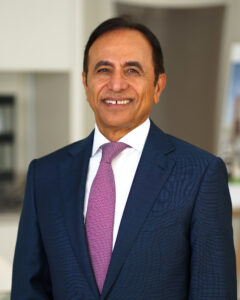Defining The Importance And Future Of Human Capital In The Hospitality Sector: Ròya International Unveils The Results Of Its First Industry-Wide Survey, Conducted In Honour Of Its 25th Anniversary
Ròya International, the largest and oldest hospitality consultancy firm in MEA, celebrated its recent 25-year anniversary by launching a new series of ‘Ròya Surveys’.
Designed to honour the brand’s momentous milestone and further its ambition to uplift and empower the hospitality industry, the revolutionary data gathering initiative aims to provide an accurate and unparalleled analysis of the sector’s ever-changing trends and best practices.
Derived from an audience of 50 high-level C suite and general managers, the first survey focused on the impact of human capital on the hospitality industry.
Covering everything from the training modules offered to employees to which skills and competencies will prove most valuable in the coming years, Ròya International will use its enlightening research to improve its own services, and to help it create a more successful future for the hospitality industry.
Demonstrating the relevance and power of human capital, a massive 91.3% of participants considered human capital to be an ‘extremely important’ factor in the success of the hospitality industry.
When it came to the most critical job roles in terms of human capital, the top answers were hotel management roles and frontline staff. While there is a prevalent robust modus operandi of hiring the leaders when they hire their crew, many of the respondents thought customer-facing jobs remain critical jobs including servers, bartenders, housekeeping and receptionists. Meanwhile, other categories such as marketing, IT and finance received little to no votes.
The survey also found that the biggest challenges in attracting and retaining talented employees stemmed from the low pay and limited benefits that come with jobs in housekeeping, service, maintenance and other entry-level hospitality jobs that don’t require any qualifications or prior experience. Delving further into this issue, Ròya found that overall, hotels in the UAE offer comparable wages to USA and those in Europe but the perquisites and benefits in UAE make these entry-level jobs lucrative and yet competitive. It also found that smaller hotels tended to offer higher salaries but no additional benefits, whereas larger hotels were able to offer additional perks such as accommodation and transport.
Competition from other employers was therefore found to be the second biggest threat. After all, in low-paying jobs, a slightly higher salary offer may be enough to prompt some employees to move property. High turnovers and staff shortages will then inevitably have a negative impact on customer service.
In terms of the most important future skills, the world’s new awareness and commitment to protecting the planet led to sustainability and environmental awareness (52%) coming out at the top answer. Digital literacy (44%) was the second most popular, reflecting technology’s ability to provide the best experiences for guests, efficiently perform tasks, solve problems and manage information.
Meanwhile, the top three most essential training modules for employees were found to be ‘customer service and guest relations’, ‘job-specific skills and tasks’ and ‘health and safety protocols and procedures’. The latter was particularly imperative during the COVID-19 pandemic, and other modules such as conflict resolution, sales and marketing, time management, sustainability, digital literacy and social media were also popular suggestions for new hotel employees.
The length of staff training was found to vary according to each hotel’s size, budget and standards, with 40% delivering 30 hours or more and 32% delivering between 10 and 20.
Interestingly, it was found that 30.77% of participants did not measure the ROI of investments in human capital. This is probably due to a lack of awareness about how beneficial this can be, and a shortage of resources and staff who have the expertise to conduct such analysis.
Looking to the future of human capital, the survey concluded that, in order to improve customer satisfaction levels, the industry should shift its focus from technical to soft skills and emotional intelligence. Over 50% also predicted that the sector’s current shortage of skilled workers would only continue to get worse, exemplified by factors such as the current low wages for vital roles such as chefs, managers, and customer service representatives, and increasing competition from other industries.
Ahmed Ramdan, Founder and CEO of Ròya International, said: “The findings of our first Ròya Survey on human capital have been extremely interesting, and they have certainly given us a lot to think about. Based on my own intuition and the thoughts of over 50 of the region’s top hospitality professionals, I believe that to combat the shortage of skilled workers in the industry, hotels should prioritise training team members in soft skills such as communication and problem solving and ensure that they are well versed in all the latest technologies. Digital tools are ever evolving, and their importance in the hospitality sector will only continue to increase.
“I want to thank everyone who took the time to fill in our survey and share their priceless insights with us. As the UAE’s tourism and hospitality industry continues to grow and develop, initiatives such as this provide valuable data that will help us continue to create memorable and unique experiences for guests from across the world, and further position the region as the world’s leading leisure and tourism destination.”
Ròya International will be conducting several more surveys over the coming months. To find out more about their world-renowned hospitality consultancy services, please visit Ròyainternational.com.









